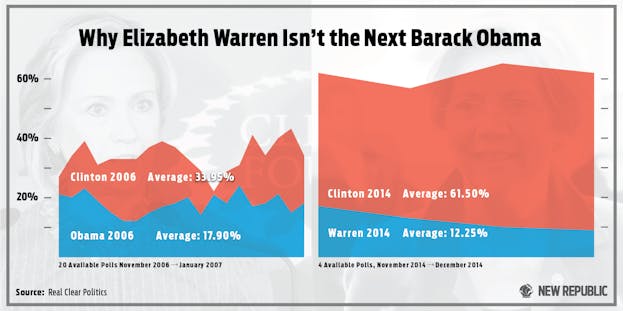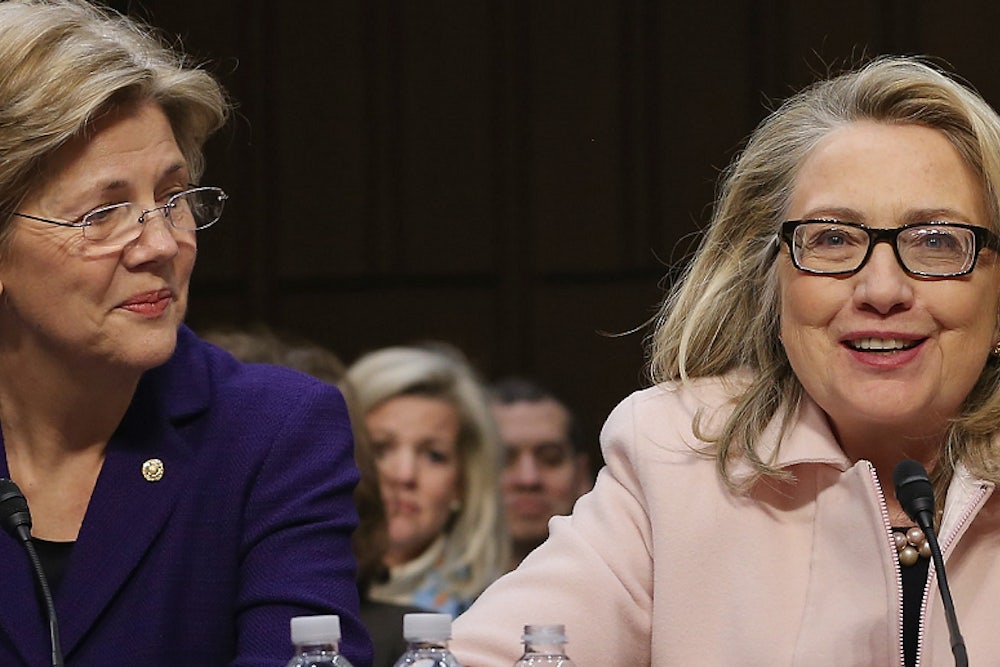Warren-mentum is upon us. The Massachusetts senator still says that she is not running for president but won’t say that she will not run. At the same time, she has dominated the airwaves over the past two weeks with multiple speeches excoriating Wall Street and criticizing the White House as too close to the banks. That’s led many people—myself included—to argue that the chances Warren runs for president are quickly rising.
In fact, some journalists have gone further and declared that Warren has a legitimate shot at winning the Democratic nomination. “[I]t seems clear that she has a significant and growing chance of being nominated,” David Brooks writes in the New York Times Tuesday. Commentary’s Peter Wehner agreed with Brooks’ analysis. “[O]ne can imagine that Warren’s anti-Wall Street stand will be in 2016 what Barack Obama’s anti-Iraq war stand was in 2008–an issue that ignites a political fire that consumes Hillary Clinton,” he writes. Others on the left have made similar comments.
These analyses all overstate the odds that Warren actually defeats Clinton. To understand that, look at the polls from November 2006 through January 2007. In the 20 polls during that time, Clinton’s lead over then-senator Barack Obama had already narrowed to an average of 16.1 percentage points. There have been only four polls so far in November and December of this year, but Clinton’s lead over Warren is an average of 49.3 percentage points—three times larger now than in 2006.

That doesn’t mean she’s unbeatable, of course. And Brooks, Wehner and others certainly wouldn’t call Warren the favorite. But it means that her chances of winning the nomination are still exceedingly small. Until the polling narrows—and it likely will—there’s no reason to think Warren has a real shot at victory, no matter how much she dominates news headlines.
